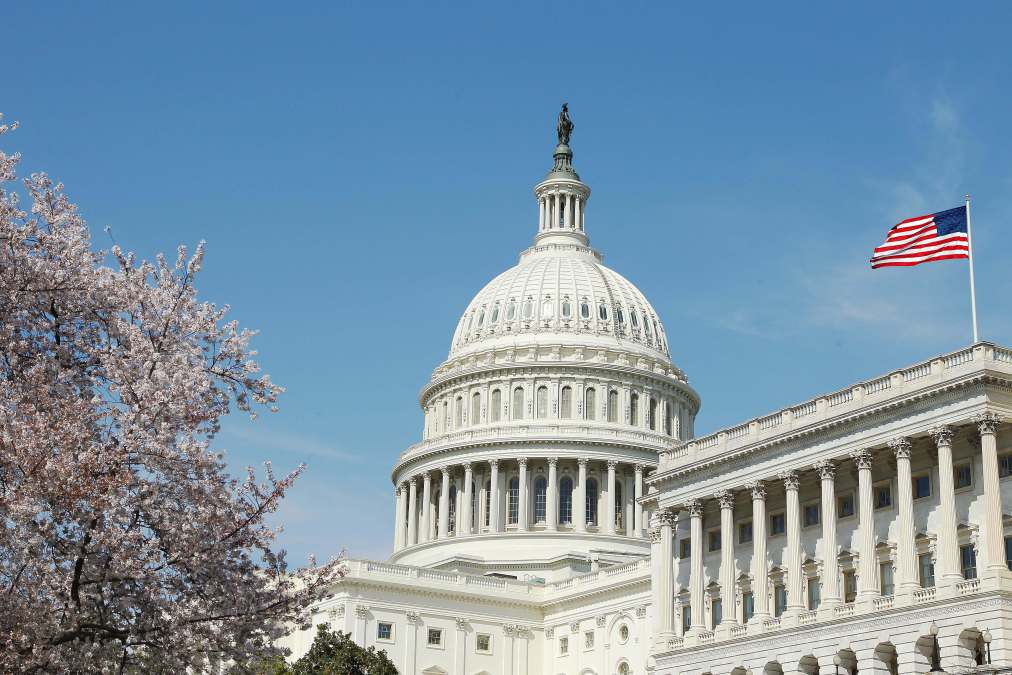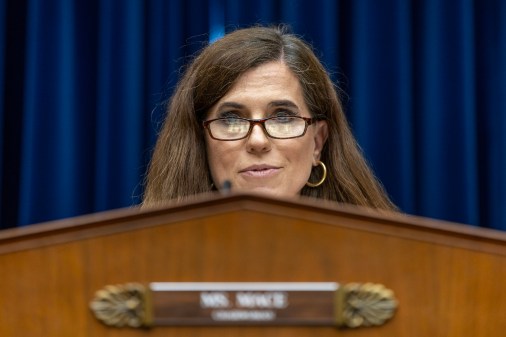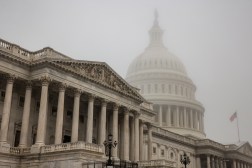Why has the NDAA become the fast lane for essential tech bills?

The Modernizing Government Technology Act is a bipartisan bill designed to solve the pressing problem of upgrading federal IT and commands broad support on Capitol Hill.
So, naturally, it’s now an amendment to the 2018 National Defense Authorization Act, a move that’s become a trend in the passage of recent landmark IT legislation.
Sens. Jerry Moran, R-Kansas, and Tom Udall, D-N.M. — co-sponsors of the Senate version of the tech bill — offered it as an amendment to the annual defense authorization bill this week, attempting to ensure that if the NDAA passes, so does the MGT Act.
The $500 million bill already passed the House twice — once this May and once in 2016, before failing to move in the Senate prior to the end of the previous Congress — and is cited in the president’s proposed fiscal budget for 2018 as central in the White House’s strategy to update agency systems.
So why is it being shepherded in as an add-on to massive defense policy bill?
Because, despite support from Republicans and Democrats, it might be the only way it gets passed.
“Legislation is moving slowly these days and finding a must-pass bill on which to attach common sense reforms is a preferred route even more than usual,” said Robert Shea, a former Office of Management and Budget associate director and current public sector principal at Grant Thornton.
“There’s a lot going on in Congress: tax reform, health care reform, infrastructure,” Shea said. “Those are big-ticket items that are consuming a lot of Congress’ energy. I would say that those things, combined with Congress’ traditional difficulty moving legislation, generally make it more likely that they are going to go that kind of route.”
The maneuver isn’t new — legislators used it to pass some of the defining technology legislation in recent memory, including the Federal Information Technology Acquisition Reform Act, or FITARA, which was attached to the 2015 NDAA, and the Clinger–Cohen Act of 1996.
Don Kettl, professor at the University of Maryland’s School of Public Policy and a nonresident senior fellow at the Brookings Institution, said the urgency of passing a Pentagon budget makes the NDAA an attractive target for legislators looking to revive stalled bills.
“Must-pass bills become more attractive for lots of different pieces of legislation,” he said. “With the calendar, it creates a kind of regular, predictable car that members of Congress can ride in pushing other pieces of legislation through.”
Despite the popularity of the MGT Act, the original bill stalled in the Senate in 2016 in part because of a Congressional Budget Office ruling that it would cost $9 billion to implement.
House co-sponsors Rep. Will Hurd, R-Texas, and Rep. Gerry Connolly, D-Va., retooled the bill in 2017, trimming costs to $500 million.
The re-introduced bill is the same as its predecessor in that it proposes allowing agencies to put money they have saved with IT into working capital funds, which can be accessed for up to three years, to fund future efforts to modernize their technology. It also calls again for the creation of a centralized fund agencies can tap into for modernization. The latest iteration, however, caps the amount that can go in the centralized fund for year one and year two at $250 million per year,
But despite another successful House vote, MGT has not moved in the Senate.
With a stacked legislative agenda, utilizing the NDAA may be the best way to fast-track a bill lost in the shuffle of Congress. Still, the Senate could limit the number of amendments to the annual defense spending measure through a series of cloture votes, which will require 60 senators supporting the amendment.
Kettl said that despite the high bar the MGT Act must achieve to remain in the NDAA, the support for the legislation should keep it in play.
“This is one where the CBO scores look like they are good and where the need [for this legislation] are enormous,” he said. “And there is actually a connection to defense as well, in addition to other government agencies. It’s not surprising at all that they are using this a vehicle to jump on.”
Reps. Hurd and Connolly were not immediately available for comment.





